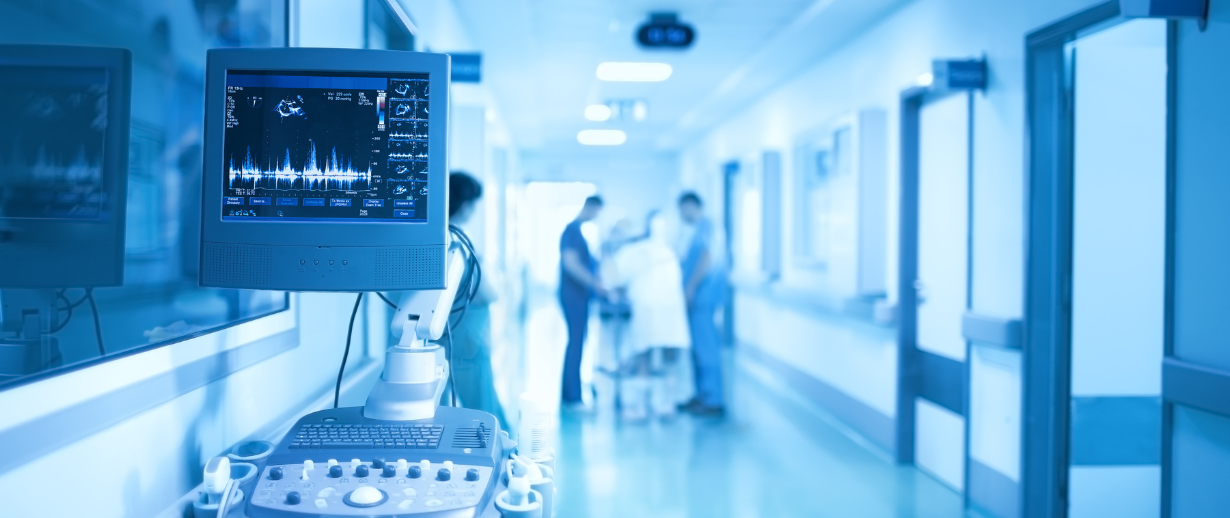Hospitals rely on a constant stream of high-purity water for the decontamination of equipment to help prevent the spread of resistant pathogens and to ensure the longevity of essential endoscopes and medical instruments. However, underfunded – with a maintenance backlog of over 13 billion pounds, process water treatment, if not properly maintained, can be an extremely costly expenditure for the NHS (Updated April 2025).
The Growing Crisis in NHS Infrastructure
Since 2015/16 the maintenance backlog for the NHS has risen by £7.4 billion pounds (from £6.4bn to £13.8bn), with a significant portion of this backlog classified as 'high' and 'significant' risk. This has occurred during a period where funding has been transferred from the NHS capital budget to the revenue budget to fund front-line services. The current maintenance backlog (£13.8bn) is now larger than the total cost of running the NHS estate over the last financial year (£13.6bn), with the high-risk backlog alone growing from £1bn in 2015/16 to £2.7bn in 2023/241.
The Importance of Strategic Investment
With the NHS experiencing such a stark deficit it is vital to ensure that where investments can be made to maintain or replace high risk estate (areas where repairs must be addressed with urgent priority in order to prevent catastrophic failure, major disruption to clinical services or deficiencies in safety liable to cause serious injury and/or prosecution), it is done in the most cost-effective way.
The Critical Role of Water Technology in Healthcare

Ensuring that process water technology is properly maintained is vital to the NHS. Pure water is essential to the disinfection of endoscopes and other medical instruments that cannot be thermally sterilised. To prevent the spread of resistant pathogens, which can occur as a result of surgical tools not being properly disinfected, endoscopes and other instruments need to be chemically disinfected and rinsed in purified water using Automated Endoscope Reprocessors (AER) or Washer Disinfectors (WD).
Resistant pathogens cost lives and the NHS hundreds of millions a year and can be easily circumvented by regular monitoring and sampling purified water, as required by the Health Technical Memoranda (HTM).
However, managing purified water technology, optimising or replacing existing equipment can be complex, timely and costly, utilising the time of facility managers that could otherwise be employed for more critical matters.
Solutions Through Expert Partnership
By working with a water technology expert, hospitals can receive a tailored service including consultancy, water treatment system design, installation, testing and maintenance to ensure a regular supply of compliant, purified water. When current equipment needs to be replaced or new equipment needs to be introduced to make the process water treatment system run more efficiently, it can be a costly upfront cost.
Rental equipment is also a cost-effective approach, offering savings on equipment maintenance and operation, and manpower needed. As an example, a service agreement with us provides a total package solution where the cost of the rented equipment includes the installation, maintenance, and remote monitoring – a complete hands-off approach for hospitals. As well, it provides hospitals with the ability to focus exclusively on patient care.

To further reduce ongoing costs for healthcare applications, we can also remotely monitor equipment through Hubgrade. A cloud-based platform, Hubgrade is a web-enabled, customer-driven monitoring system that supports adaptive chemical dosing, responding to fluctuations in the water’s make-up to achieve peak efficiency and performance while demonstrating regulatory compliance. We will work to implement data-driven, water-saving solutions that maximise equipment life cycles, reduce maintenance, and optimise water use, all in real-time.
Case Study Example: Halton Hospital
This technology has already proven its value in healthcare settings. At Halton General Hospital, VWT UK's Hubgrade digital monitoring system recently helped resolve a water systems breakdown in just 30 minutes - all done remotely without the need for on-site engineers. When the hospital's ThermapureTM 300 Duplex Unit stopped functioning due to unexpectedly pure water levels, Hubgrade allowed our team to quickly diagnose and fix the issue remotely. Without this digital monitoring capability, the hospital could have faced up to 24 hours of disruption to their washer systems, significantly impacting hospital operations and patient care. This real-world example demonstrates how smart digital solutions can help healthcare facilities maintain critical services while minimising costly downtime. [Read the full case study here]
With the NHS maintenance backlog at record levels, cost-effective solutions are more critical than ever. As a full-service provider with decades of healthcare experience, our expert team works closely with NHS facilities to deliver efficient, sustainable water treatment solutions that protect both budgets and patient care. Contact us today to discover how we can support your facility's needs.
Click here to speak to an expert now.
1 - https://www.health.org.uk/reports-and-analysis/analysis/the-nhs-maintenance-backlog-rising-costs-and-falling-investment